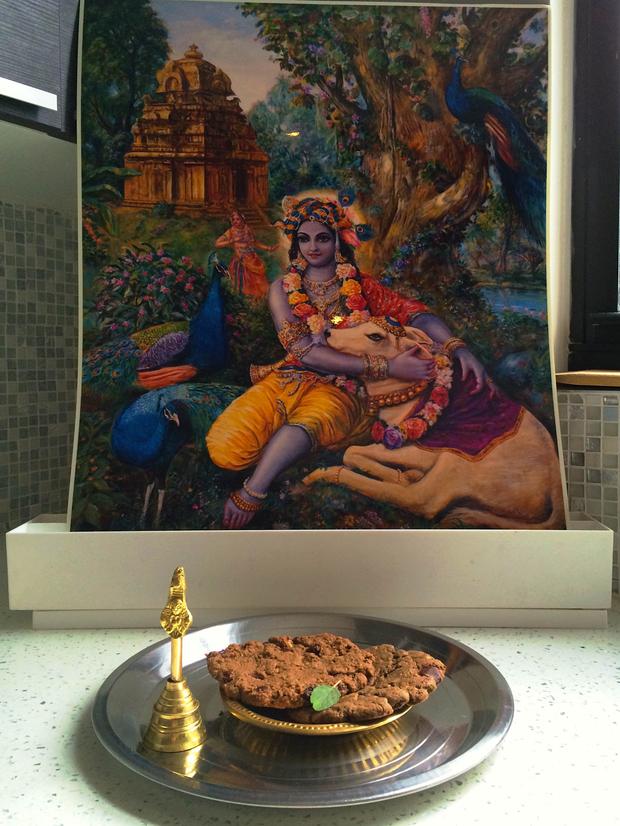The Hare Krishnas Are Back, Thanks to Occupy Wall Street
Description
Nihal Kajjam remembers the precise moment when he encountered the Hare Krishnas in New York. He was wearing jeans and a black Megadeth t-shirt and was walking near the statue of Gandhi, in Union Square.
And then he heard a small group of people dressed in saris and traditional robes, chanting — and it captivated him.
Kajjam grew up in a religious, Krishna-worshipping family in India, but had since personally "dwindled." He ate meat, grew a little too cocky about his jumpshot, fell hard for a girl who broke his heart. Watching the Hare Krishnas chanting, though, inspired him, and earlier this year he left his NYU dorm and moved into the Hare Krishna ashram in Bedford-Stuyvesant. He's become a vegetarian and he's celibate.
The Hare Krishnas, he said, have given him a sense of purpose and a community.
"If you give up the senses for the right reason, you get a higher taste. And that higher taste is tasty, bro. It’s really good. It’s awesome! Now I have meaning to my life," Kajjam said.
Kajjam is just one of those drawn to the new Hare Krishnas, who are making a comeback in New York. The International Society for Krishna Consciousness was founded in the East Village in 1965 by A.C. Bhaktivedanta Swami Prabhupada, known as Prabhupad. Prabhupad became one of the central figures of the counterculture, and for a while, the Hare Krishna chant was everywhere — on the streets, in pop music, and on TV.
But then the religious group seemed to vanish.
Steven Gelberg, who joined the Hare Krishnas in 1970 and left in the 80s, said that the Krishnas had become aggressive — and dishonest. He recalled a Krishna technique he dubbed The Changeup: First, a Krishna would give someone a book. Then (seemingly on second-thought), he or she would ask for a small donation, and convince the mark to hand over a $20 with the promise of change. But then the Krishna would never give the change back.
"And so they put people in the position that they had to be almost rude and say, 'No, give me more money back. I'm gonna give you $5, I want $15 back.' So it became a very manipulative thing, and that really pervaded the organization," Gelberg said.
Various Hare Krishna scandals followed, and people left the fold or moved away. Some of the especially devout, like Abhiram, born John Sims, moved to India and chanted there.
Then Occupy Wall Street happened in 2011. Some Krishnas led the Occupiers in chanting and it sparked a rebirth.
<iframe frameborder="0" height="360" src="http://www.youtube.com/embed/zp2PZHEYtwA?rel=0" width="640"></iframe>
"We decided we should bring the Hare Krishna mantra back to the streets of NYC. Just as Occupy Wall Street have gone to the streets," said Abhiram, who now presides over the Bed-Stuy ashram. "No social change ever in history comes from the intellectuals, comes from the leadership, comes from the vested interests. Ever. Never. It always comes from the bottom. It always comes from the street. And so we're taking it to the streets."
With the Hare Krishna revival came a new business plan. Instead of conning strangers out of their cash, the Krishnas make organic, gluten-free, vegan, dark chocolate chip oatmeal raisin cookies. They're being sold for $3.50 each at The Bean chain and other fine coffeeshops.

For Kajjam, the sense of belonging he's found with his fellow Krishnas has been invaluable.
"All these guys, I feel like taking their legs and putting them on my head," he said. "Because if it wasn’t for their mercy, I’d be so lost."





